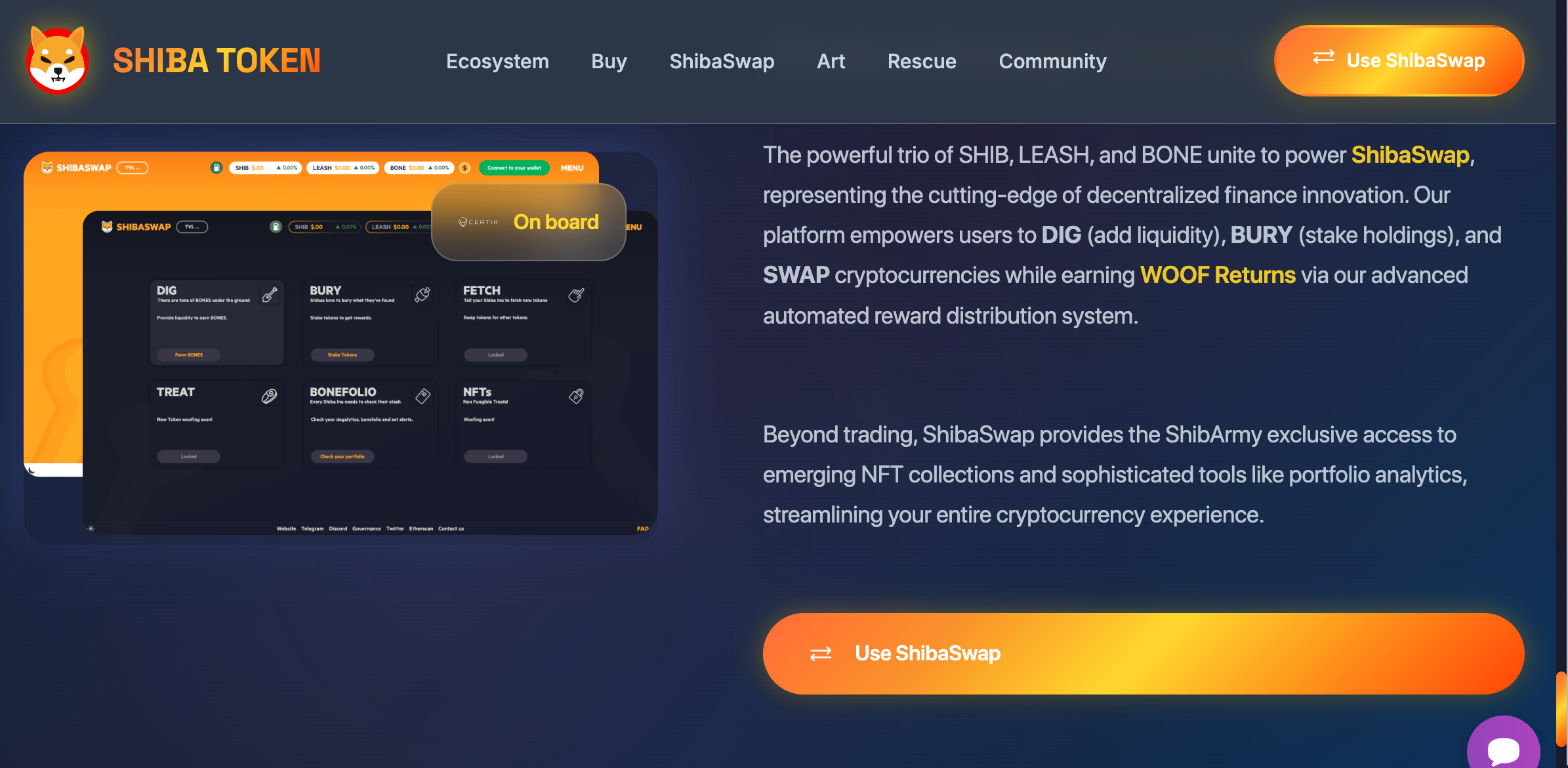Shibget.com Scam Review – Unveiling the Deception
In the volatile and often unpredictable world of cryptocurrencies, scam operators often use flashy marketing to lure in unsuspecting investors. A prominent example is Shibget.com — a website that claimed to run a massive “giveaway” of popular meme-tokens and promised extraordinary returns to participants. While the promise seemed almost too good to be true, a closer inspection reveals that it quite likely was exactly that — too good to be true.
This review explains how Shibget.com appears to have operated, the reasons it is widely considered a scam platform, significant warning signs, and the broader lessons investors should learn from such operations.
1. What is Shibget.com?
Shibget.com portrayed itself as a crypto giveaway platform, claiming that it was distributing a gigantic amount of a popular meme-token (in this case apparently tied to “Shiba” branding) to users who participated. The website presented itself as part of a mass adoption campaign, inviting users to send tokens to a wallet address under the promise of receiving double the tokens back or gaining access to an exclusive token dump.
Essentially, the pitch was: Send us your crypto, and receive more back. On the surface this appears to be a generous giveaway — but in reality, giveaways of this structure are impossible to sustain without hidden risks or outright deception.
Although the website and marketing looked legitimate to many, the underlying structure lacked transparency, credible backing, and safeguards. That discrepancy is what raises major concerns about legitimacy.
2. How the Scheme Functions (based on reported behaviours)
From available reports and scam-monitoring websites, the operational pattern for Shibget.com appears to follow a typical crypto-fraud structure:
-
A promotional campaign is launched, often referencing a popular brand, token, or celebrity endorsement (real or assumed) to draw attention.
-
The website advertises a massive “token giveaway” (for example “one trillion Shiba tokens”) or a “double your deposit” promise keyed to a popular meme coin.
-
The website provides a wallet address or directs users to send a specific crypto asset to a designated address with the promise of receiving back more or some other large “reward.”
-
Some transactions may appear on blockchain explorers (either genuine or manipulated) to create a false sense of legitimacy or activity.
-
After users send crypto to the specified wallet, they either receive nothing in return, or the value of what they receive is negligible, or they are blocked from withdrawing.
-
The website may vanish or the organizers disappear, leaving participants unable to recover their funds.
In the case of Shibget.com, the specific pattern involved inviting users to send the meme-brand token in exchange for a “giveaway” or “double back” reward — but reported evidence suggests the promise was false: the funds sent were not returned in the promised way.
3. Major Red Flags and Warning Signs
When we evaluate Shibget.com through the lens of scam indicators, numerous warning signals emerge. These include:
-
Promises of “double your crypto” or giveaway of huge amount – Legitimate crypto operations seldom promise doubling of funds or extremely large giveaways, especially in short time frames. These kinds of promises are classic scam signs.
-
Requests for users to send tokens first – A site that asks you to send crypto expecting a reward back is highly suspicious. Real projects rarely require you to send funds first purely to receive a “bonus” or “giveaway.”
-
Lack of credible project information – There is no verifiable track record or transparent auditing of the project behind the “giveaway.” Real token giveaways typically have clear terms, independent verification, and no hidden “send funds first” requirement.
-
Use of popular meme branding to lure victims – The use of “Shib” or similar names tied to big meme coins tries to borrow credibility from established projects. This kind of piggy-back branding is a known tactic by scam operators.
-
Fake transaction references and testimonials – Reports note that the website included purported transactions or “proof of payments” to convince users. Often these can be fabricated or misrepresented, designed to create trust.
-
No regulation, no protection – The event is unregistered, unregulated, and no oversight exists. If anything goes wrong, there is minimal to no recourse.
-
Feedback from third-party alert sites identifying it as a scam – Independent monitoring entities flagged the giveaway site as fraudulent, citing the unrealistic claims and the structure of the offer.
Taken together, these red flags paint a picture of a fraudulent operation. The presence of so many together makes it extremely likely that Shibget.com was not honest in its promises.
4. Why the Scam Works and Why People Fall For It
Understanding why such scams succeed helps explain how they manipulate human nature and crypto-market psychology:
-
Human desire for fast profits – The offer of “send X, get 2X back” appeals to greed and hope, especially in an environment where cryptocurrency success stories are widely publicised.
-
Complexity and unfamiliarity of crypto space – Many new users do not thoroughly understand how token giveaways, liquidity, exchanges, and smart contracts work; they may assume the site is legitimate without doing detailed checks.
-
Brand-association and trust by extension – When a scam uses a name that sounds like a well-known coin (e.g., “Shiba”), people may trust it more easily, assuming connection to reputable projects.
-
Fake urgency and exclusivity – “Limited time giveaway” or “only first 1,000 senders qualify” triggers FOMO (fear of missing out) and pushes people to act without due diligence.
-
Initial small payout illusions – Some operations pay a small amount initially (or show fake increasing balances) so users believe the system works, then ask for larger deposits. While there is less specific evidence for that pattern in Shibget.com, that is often how such scams escalate.
-
Minimal regulatory recourse – Because crypto operations often sit in grey jurisdictions and the victim likely sent crypto from a personal wallet, the opportunity for legal recovery is severely limited, which makes such schemes more attractive to fraudsters.
Because of these psychological and structural vulnerabilities, schemes like Shibget.com continue to attract victims despite widespread warnings.
5. The Anatomy of the Public Reports Regarding Shibget.com
From public alerts and scam-monitoring sites, the following narrative emerges about Shibget.com:
-
A website is set up claiming a major crypto giveaway tied to a trendy token name.
-
Victims report sending tokens to a wallet address provided by the site expecting rewards.
-
The site displays some fake “proof” or “transactions” to create credibility.
-
After sending tokens, victims receive nothing (or negligible return) and cannot access promised benefits.
-
The website may remain up but becomes unresponsive, or it disappears altogether, and the wallet address remains under control of scammers.
-
The scam alert lists the website under “fake giveaways” and warns not to engage.
In other words, Shibget.com followed the blueprint of “send crypto first, wait for reward that never comes” – a classic giveaway scam.
6. Why Labeling It a Scam Platform Is Warranted
Given the evidence and standard frameworks for identifying scams, calling Shibget.com a scam is justified because:
-
It fails the test of transparency: there is no clear team, no audit, no credible backing.
-
It relies on unrealistic promises of reward in return for upfront crypto payments.
-
It uses misleading branding and leverages the hype around well-known tokens to create perceived legitimacy.
-
Independent sources have flagged the website as fraudulent based on actual reports of non-payment and deceptive structure.
-
The mechanism of operation is built on collecting deposits, not on delivering utility, value, or actual investment returns.
Because all these elements are present, it is reasonable to classify Shibget.com as a scam or at least extremely high-risk fraudulent platform.
7. What Victims Typically Report
Victims of platforms like Shibget.com describe consistent experiences:
-
They discover the website via a social media post or message about a “mega token giveaway.”
-
They are asked to send a specific amount of crypto (often a meme coin) to a wallet address, under the promise of receiving a larger amount in return.
-
They complete the transaction, and the website may show a “pending” reward or “processing.”
-
When the time comes to receive or withdraw the reward, the user either receives nothing, or the value is far lower than promised, or the system locks access.
-
Attempts to contact support yield no response or start asking for additional “verification” or “fees” to unlock rewards.
-
Eventually, the website disappears or becomes inactive, and the wallet address remains controlled by the scammers, leaving the victim with a permanent loss of the sent crypto.
While I cannot cite individual user names here (this blog is link-free), this pattern matches the publicly reported behaviour for Shibget.com and many similar operations.
8. Lessons to Learn (without explicitly focusing on recovery)
Even though this platform was fraudulent, the broader lessons go beyond just this case. From Shibget.com’s modus operandi we can derive key take-aways:
-
If you are required to send crypto first to “receive a giveaway” or “double your funds,” treat it as suspicious.No genuine project asks users to send funds upfront purely to get a reward.
-
Brand familiarity is not trust. Just because a website uses a name similar to a well-known token doesn’t mean it is legitimately affiliated.
-
Check the underlying mechanism: What is the value? What is the use case? A token giveaway must have a clear structure and utility. If it’s simply “send funds and get more,” that’s a red flag.
-
Be cautious when documentation is missing. Genuine projects usually publish a whitepaper, audits, team bios, and will not rely purely on hype.
-
Avoid decisions driven purely by FOMO. High-pressure promotions (“limited time,” “massive rewards”) are often catalytic for scams.
-
Treat anonymous proposals with skepticism. If you cannot identify who is running the project or verify their credentials, risk is much higher.
By internalising these lessons, investors can better recognise when a platform is likely not legitimate before committing funds.
9. Final Thoughts
In summary, Shibget.com serves as a textbook example of a cryptocurrency giveaway scam. The promise of huge token giveaways in exchange for deposits, the use of popular meme-token branding, the lack of transparency, and the reported pattern of non-payment all point to fraudulent intent rather than legitimate operation.
While there are many genuine opportunities in the crypto space, this case underscores that not every opportunity is real. The appearance of legitimacy—flashy website, popular token name, social media hype—should never substitute for rigorous verification and caution.
In the rapidly evolving world of digital assets, staying vigilant is paramount. Platforms like Shibget.com remind us that what looks like a windfall might actually be a trap. If you cannot easily verify how the project operates, who runs it, and how value is created and distributed, you are entering a high-risk zone.
The best investing decisions are grounded in transparency, utility, verifiable proof, and realistic expectations—not promises of doubling funds overnight. Platforms that deviate from those foundational principles deserve scrutiny and scepticism.
Report shibget.com and Recover Your Funds
If you have fallen victim to shibget.com and lost money, it is crucial to take immediate action. We recommend Report the scam to BOREOAKLTD.COM , a reputable platform dedicated to assisting victims in recovering their stolen funds. The sooner you act, the greater your chances of reclaiming your money and holding these fraudsters accountable.
Scam brokers like Bitci.com persistently target unsuspecting investors. To safeguard yourself and others from financial fraud, stay informed, avoid unregulated platforms, and report scams to protect. Your vigilance can make a difference in the fight against financial deception.





